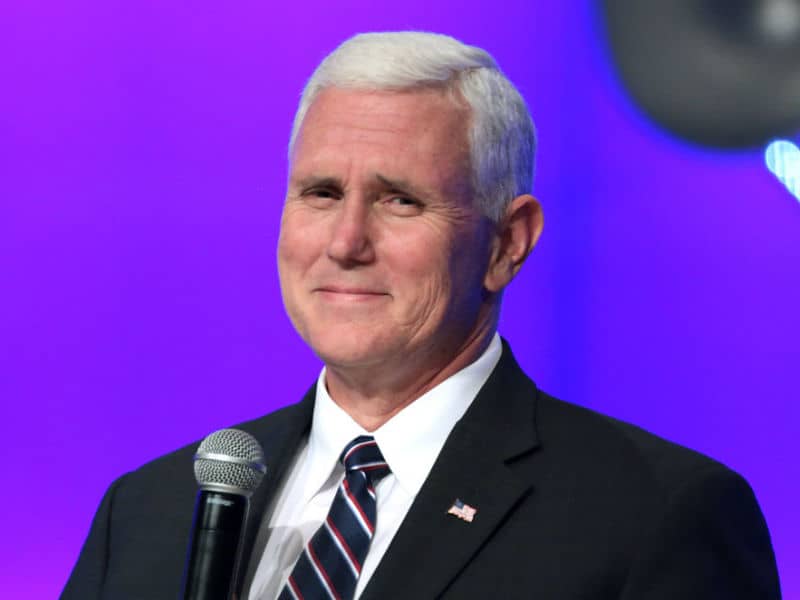Bush unveiled his plans for a White House office -- accompanied by similar new centers within five federal departments -- soon after his inauguration. In one of his first presidential executive orders, Bush said the office is designed to give religious organizations an equal chance at federal funding for programs that will help those in need, such as the poor, the addicted and the victims of crime.
The office builds on the "charitable choice" provision of 1996 welfare reform legislation that was crafted by new Attorney General John Ashcroft when he was serving as a Republican senator from Missouri. It will be led by John DiIulio, a University of Pennsylvania professor who has researched faith-based social programs.
Numerous church-state separationists already have raised the constitutional questions that such proposals prompt. But before the expected legal wrangling can begin, others are wondering about the basic matters of time, energy and equity for already-busy religious organizations.
Do congregations have time for this? Will funded groups spend more time filling out federal forms than doing acts of faith? Will the pot of funds available be equally shared?
Nancy Ammerman, professor of sociology at Hartford Seminary in Connecticut, said congregational leaders and members often cite worship and fellowship as the key areas of focus for their houses of worship. Even so, many are involved in some kind of partnership with other congregations or secular entities to meet community needs.
"I think a lot of congregations are going to think about Bush's proposal as something that is outside the range of possibilities for a whole variety of reasons," she said. "One is that it's not their primary mission and the other is that they may already feel like they are at capacity for what they can do."
At Bush's announcement, the faith-based groups represented were diverse -- from Christian to Jewish to Muslim organizations -- but evangelical Protestant ministries such as Teen Challenge and Prison Fellowship had more of the limelight than mainline Protestant ones.
Will some of the long-standing Catholic and mainline Protestant groups -- whose work has been shored up by federal funding -- now get a smaller piece of the federal pie?
"I think that also really remains to be seen," said Joanne Negstad, president and CEO of Lutheran Services in America, based in St. Paul, Minn. "I prefer to use the phrase 'opportunity for collaboration' rather than competition."
Stanley Carlson-Thies, director of social policy studies at the Center for Public Justice, whose organization has been helping the Bush administration with its planning for the new office, predicts that groups that traditionally have not received federal funding may get some now.
"This is leveling the playing field by including groups," he said. "It's not to all of a sudden (allow) a new set of groups to get money and an old set of groups not to get money."
In addition to speculation about who might apply and who might receive funding, there is the matter of dealing with the piles of paperwork that will inevitably follow government checks. Experts wonder about how monitoring and accounting will take place and whether fraudulent practices may result.
Though the Bush proposal cites plans for "increased technical assistance," Mark Chaves, a sociology professor at the University of Arizona, said "lots and lots of it" is necessary for congregations to be able to tackle grant writing and accounting responsibilities.
The White House has yet to give any financial details, but seems to be open to a diverse range of religious organizations applying for federal assistance. When nontraditional groups like the Nation of Islam and the Church of Scientology knock on the federal door, it will be interesting to see if the embrace of diversity holds.
There are some religious nonprofits that may not even be interested in Bush's new plan.
"I would be very surprised if faith-based community organizations get involved in taking any of that kind of money at all," said Timothy Matovina, associate professor of theology at the University of Notre Dame in Indiana, who addressed the Hartford seminar. Rather than focusing on "Band-Aid" approaches to societal ills, these organizations look at larger issues of justice and long-term solutions.
The lack of wholesale support for the faith-based office is reflected in a poll by Ellison Research that found Protestant pastors are lukewarm about federal funding of religious groups: 17 percent strongly supported it and 13 percent strongly opposed it, while 46 percent offered weak support and 24 percent said they were mildly opposed.
But Newsweek showed in another poll that 65 percent of adults surveyed thought Bush's idea was a good one.
Carlson-Thies expects the months ahead to be a "creative period" that may bridge the gap between "overly bureaucratic government" and "understructured groups" in need of funding. His Annapolis, Md., office is receiving calls from a range of interested parties -- large and small congregations as well as more established faith-based providers of social services.
"I think this White House thing all of a sudden has kicked it into high gear," he said. "I think what we are now starting to see is a lot of folks who were very skeptical ... are now taking it a little more seriously."

